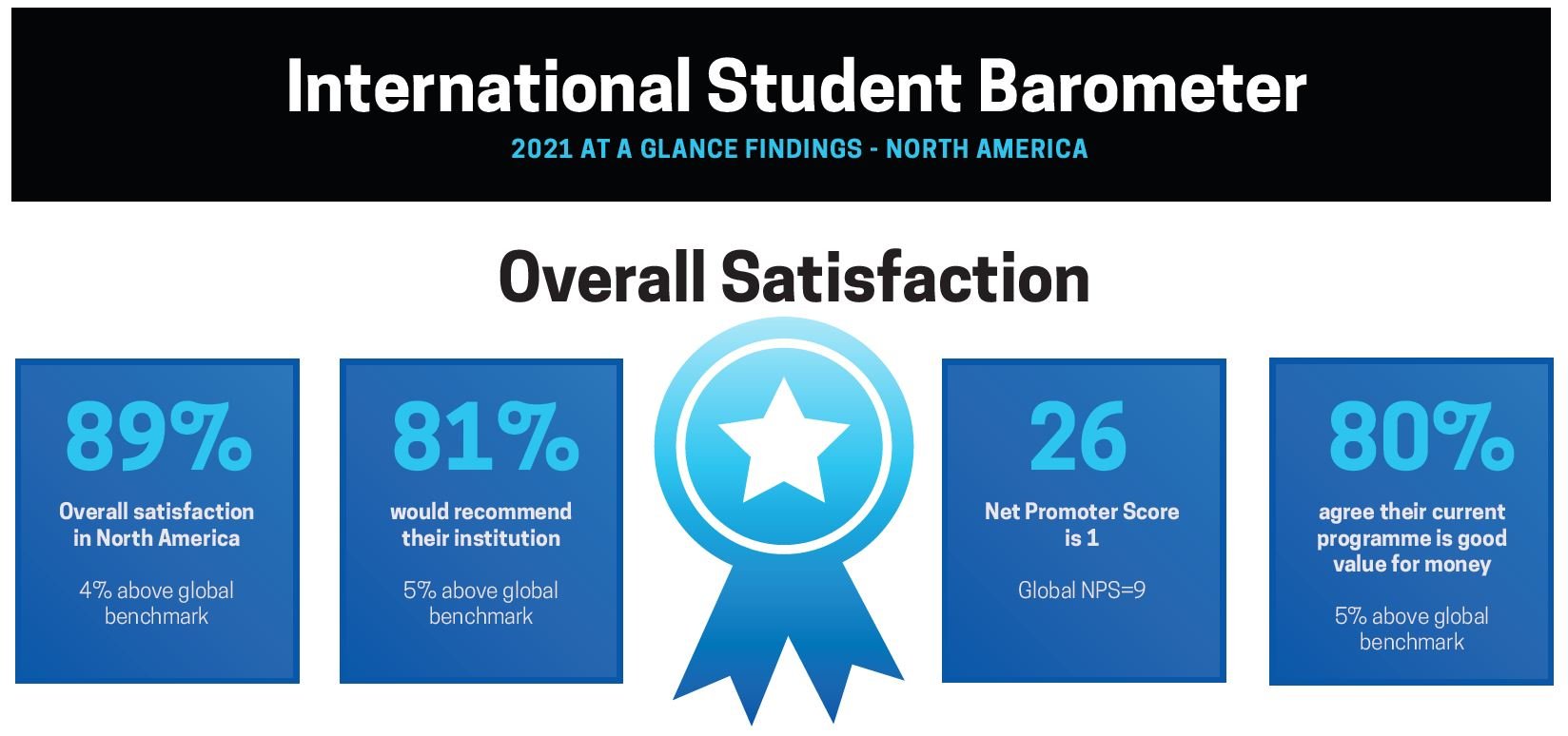By Nannette Ripmeester
In this article we look at the value of listening to the student voice during times of disruption and hear how the International Departments from two different universities see it as an important strategic exercise for the future success of their institutions.
When you run an international student survey during a pandemic that halted international mobility quite drastically during the academic year 2020-21, your first thoughts might be, “is this the right moment to ask international students about their study abroad experience?”. It turned out to be a rather good moment based on the feedback we received from Pirita Mattola, Manager International Student and Study Abroad Centre, University of Saskatchewan in Canada. After the online feedback presentation, she mentioned:
Despite the pandemic, international students in North America were still very happy with their study, showing an overall satisfaction of 89% (+4% above the global benchmark) and 81% were willing to recommend their institution (+5% above the global benchmark).“I found the presentation incredibly informative and I think there is a lot of valuable feedback in our results that we will want to take a closer look at. As unusual as 2020 was, I’m very happy we took part in the ISB and hearing from our students during this disruptive and transformative time may actually help us better position ourselves for the post-pandemic era.”

Keeping a finger on the pulse of your international student population and understanding what makes students decide on your institution and what makes them recommend remains important. What was interesting to note is that Future Career Impact was for the 3rd year in a row rated by 96% of incoming international students as the most important reason to choose a particular higher education institution in North America. Earning Potential and Country Reputation followed closely with both high percentages.

Irrespective of the pandemic, students are making career focussed study decisions. Maybe that finger on the pulse is even more important in times of change. Or, as Delo Blough Director of the Office of International Services for the University of Pittsburgh said:
“We value our relationship with our international student population. We recognize the great value they bring to our campus, and we want to do everything we can to facilitate their integration into our community so they can enjoy successful educational careers. To this end it is imperative that we understand how they experience campus life and listen to any feedback and suggestions they can provide to improve their experiences. Pitt's participation in the ISB has been invaluable. Not only can we hear from our own students, but we are able to assess where we stand in comparison to hundreds of other institutions around the world which allows us to adjust our services and programs appropriately.”
Hear more from Delo about how the University of Pittsburgh use the ISB to ensure their strategies
improve the student experience and the reputation of their institution:
Knowing, based on solid benchmarked data, what your students think and where they believe you do well is important. But it is likewise important to know what the areas are you are lagging and where you should improve. Some discussions with higher education institutions showed a slight hesitation to survey students during a year affected by COVID-19, but as Pirita Mattola said: “I believe our results could help us set some leading (vs. lagging) indicators to support international student retention and satisfaction. We could also use this data to re-evaluate our current resource allocation when it comes to certain service areas that seem to be high impact from a student perspective. Again, very valuable.”
Indeed, knowing how well your institution did during the pandemic and how your institution handled the COVID crisis is an important one: the North American average showed a 90% satisfaction around the communication, an 87% overall satisfaction and 84% satisfaction with the online experience following the suspension of on-site studying. All figures were above the global benchmark and might indicate a strong position for the North American region for post-pandemic delivery of higher education.
Some final food for thought: 55% of international students in North America said that based on their current online study experience, they would choose to study online again in the future.
Our 45 minute recorded webinar looks at the latest International Student Barometer (ISB) data used by leading Higher Education Institutions to ensure...
As institutions globally rethink how they deliver education and the wider student experience, they continue to listen to the student voice. As such,...
A recent visit to a university in South East Asia highlighted for me another aspect of the student experience that I hadn’t perhaps thought about in...